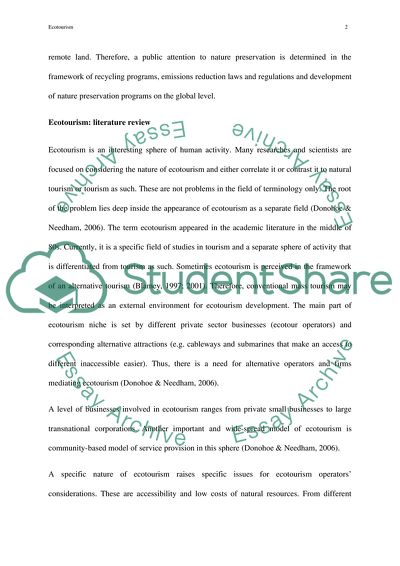Cite this document
(Ecotourism as a Product of Mass Tourism Case Study, n.d.)
Ecotourism as a Product of Mass Tourism Case Study. https://studentshare.org/tourism/1753259-identify-and-critically-evaluate-the-main-criticisms-of-ecotourism-both-as-a-sustainable-approach-to-developing-tourism-and-as-a-tourism-product
Ecotourism as a Product of Mass Tourism Case Study. https://studentshare.org/tourism/1753259-identify-and-critically-evaluate-the-main-criticisms-of-ecotourism-both-as-a-sustainable-approach-to-developing-tourism-and-as-a-tourism-product
(Ecotourism As a Product of Mass Tourism Case Study)
Ecotourism As a Product of Mass Tourism Case Study. https://studentshare.org/tourism/1753259-identify-and-critically-evaluate-the-main-criticisms-of-ecotourism-both-as-a-sustainable-approach-to-developing-tourism-and-as-a-tourism-product.
Ecotourism As a Product of Mass Tourism Case Study. https://studentshare.org/tourism/1753259-identify-and-critically-evaluate-the-main-criticisms-of-ecotourism-both-as-a-sustainable-approach-to-developing-tourism-and-as-a-tourism-product.
“Ecotourism As a Product of Mass Tourism Case Study”. https://studentshare.org/tourism/1753259-identify-and-critically-evaluate-the-main-criticisms-of-ecotourism-both-as-a-sustainable-approach-to-developing-tourism-and-as-a-tourism-product.


